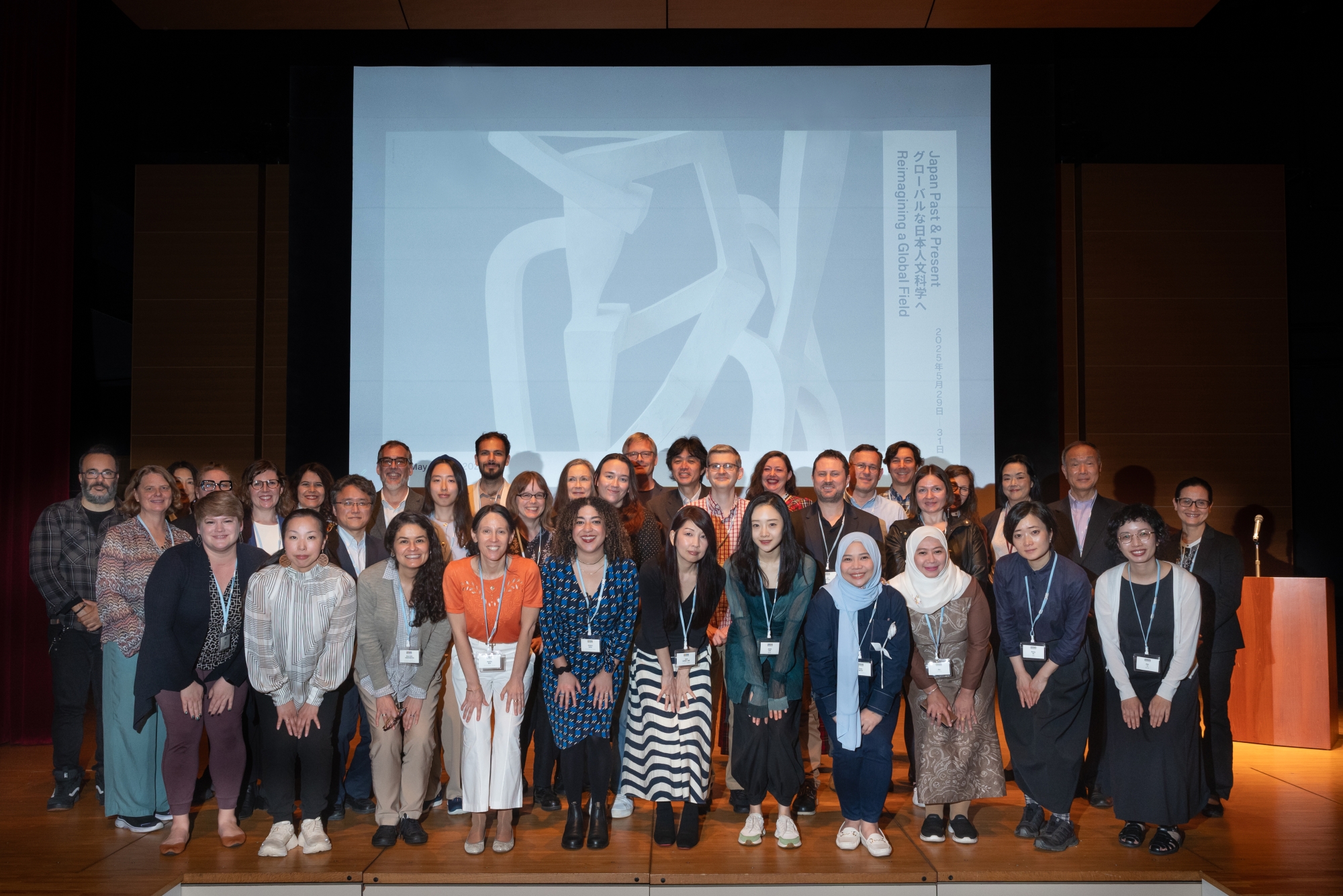A Global Perspective on Japanese Humanities Through the Japan Past & Present Symposium
Thu, Jul 10, 2025-
Tags
From May 29 to 31, 2025, an international symposium called Japan Past & Present: Reimagining a Global Field, was held at Waseda University’s Ono Memorial Auditorium. Organized by the Yanai Initiative for Globalizing Japanese Humanities, a collaborative effort between Waseda University and UCLA with the support of Waseda alum and Fast Retailing founder & president Tadashi Yanai, the conference brought together scholars from regions as diverse as Southeast Asia, Spain, and the Southern United States, for a meaningful exchange of ideas on the present and future of Japanese humanities. The event commemorated the creation of a digital hub for Japanese studies researchers by marking the launch of the Japan Past & Present website, a new digital platform developed under the Yanai Initiative. The website aims to provide equitable access to academic tools and research networks for researchers, educators, and students in the field.
An Overview
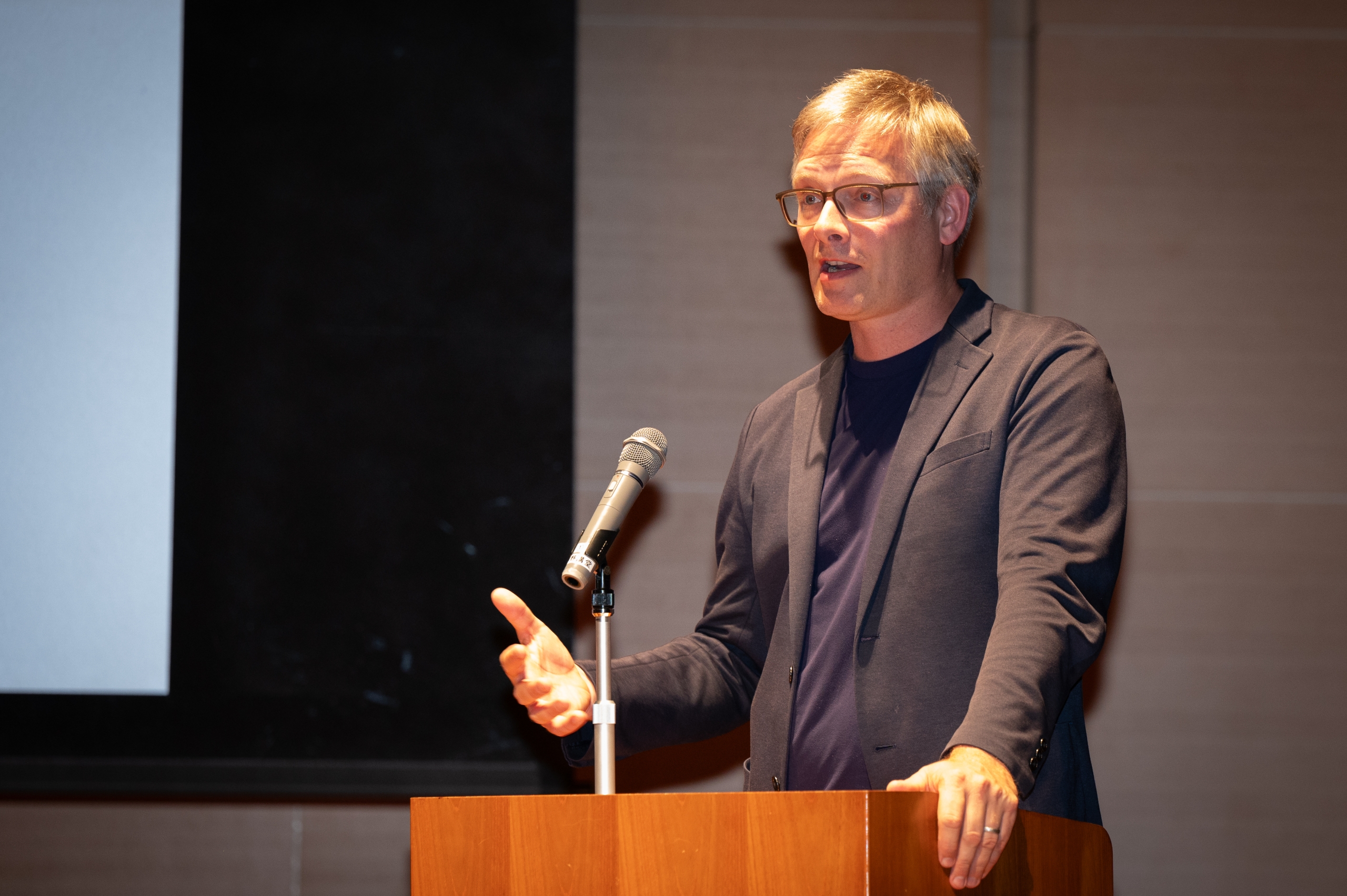
Yanai Initiative Director Michael Emmerich (Professor, Waseda University & University of California, Los Angeles)
The symposium opened with welcoming remarks by Yanai Initiative Director Michael Emmerich, professor at Waseda and UCLA, and one of the key organizers of the Japan Past & Present project, with a shared mission of building a more inclusive, collaborative, and accessible Japanese studies community around the world. In a response to questions for this article, Professor Emmerich shared, “One of the things this symposium made very clear to participants is just how many factors continue to impact the development of an academic field in any given context. These range from the macro to the micro, from geopolitical circumstances to the efforts of individual scholars.”
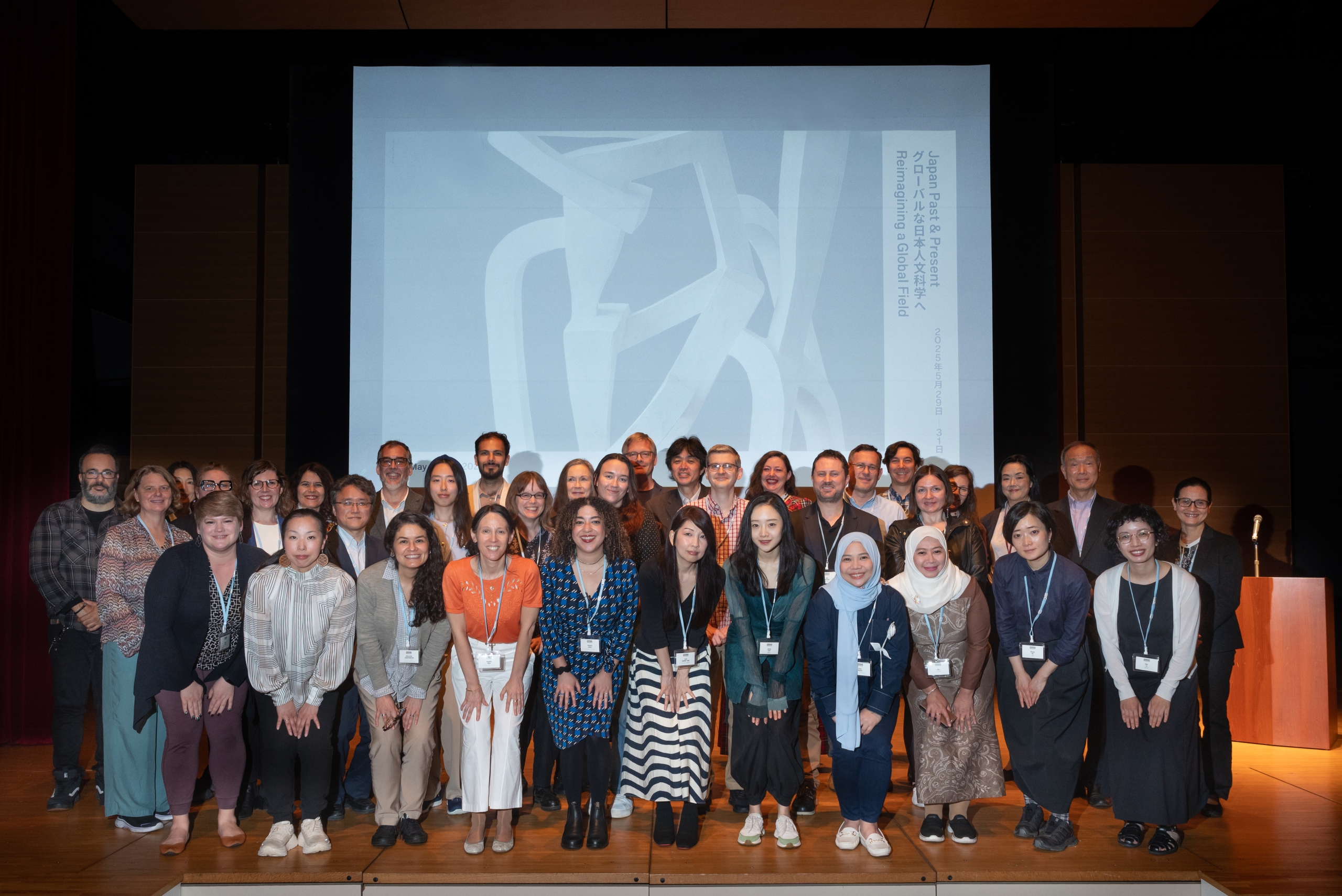
A group photo featuring participants from the third day of the symposium
Over the course of three days, a total of eight panels were held, each focusing on a different aspect of Japanese studies. Topics ranged from Japanese art studies in Latin America and education in the Japanese humanities at public universities in the southern United States. These sessions gave presenters a chance to share insights into local developments and challenges, while also encouraging critical reflection on the future of the field. Each panel concluded with a discussion session, allowing both professors and students in the audience to engage directly with the speakers. The symposium concluded with closing remarks by Co-Director of the Yanai initiative at Waseda Toeda Hirokazu (Professor, Faculty of Letters, Arts and Sciences), who reflected on the event’s contributions and the importance of continued international collaboration regarding scholarship and education in the Japanese humanities field.
Panel 3: Teaching Japanese Studies and Institutional Program Building in the American South
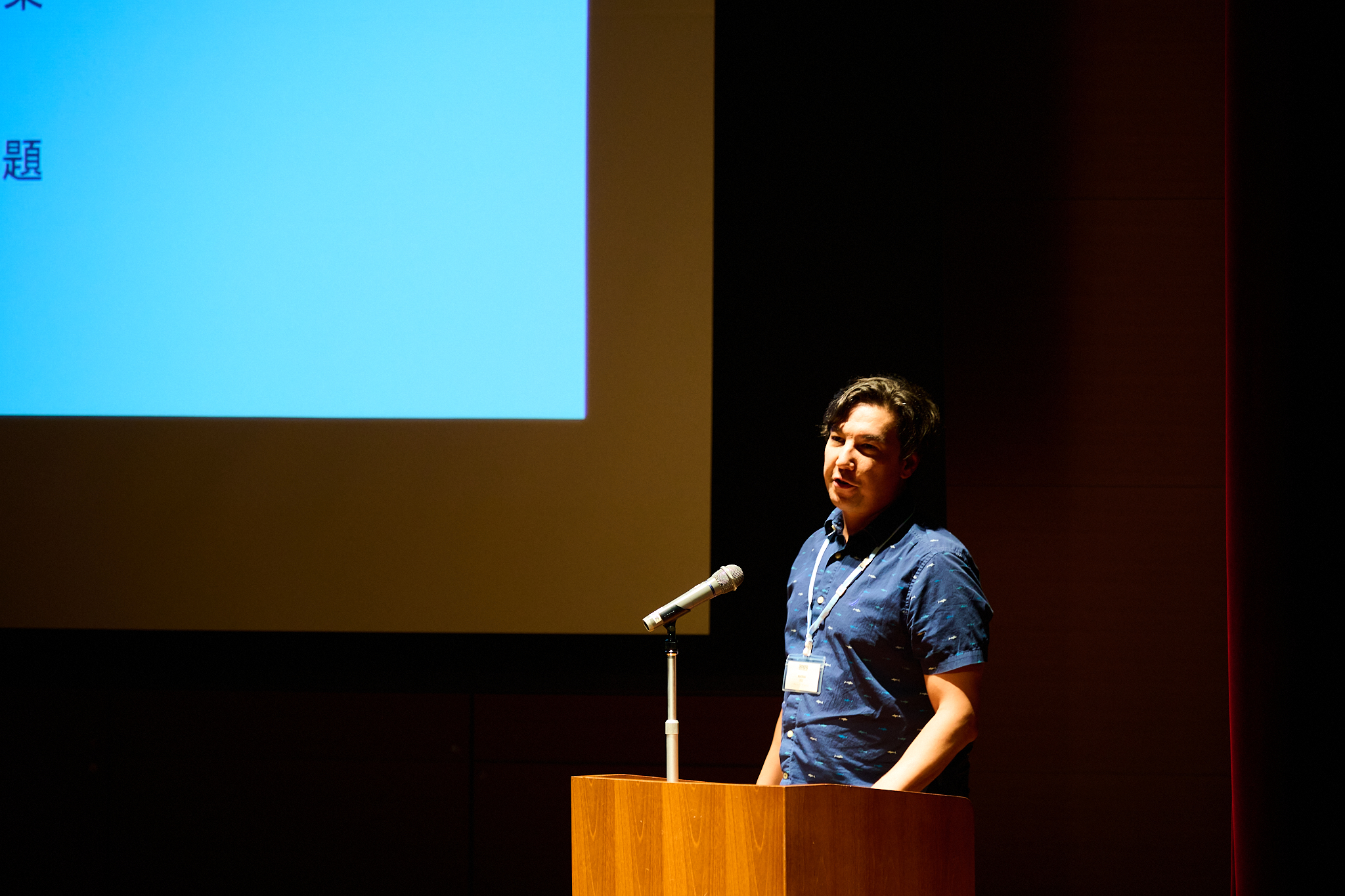
Dr. Matthieu Felt (University of Florida)
As someone studying at Waseda, I found it inspiring to witness the diversity of perspectives and strategies presented in sustaining Japanese humanities within a global context. One panel that resonated deeply with me was the panel that delved into teaching Japanese studies in the Southern United States despite structural and financial challenges. The presentations featured Dr. Chris Kern from Auburn University, Dr. Matthieu Felt from the University of Florida, and Dr. Malgorzata Citko-DuPlantis from the University of Tennessee.
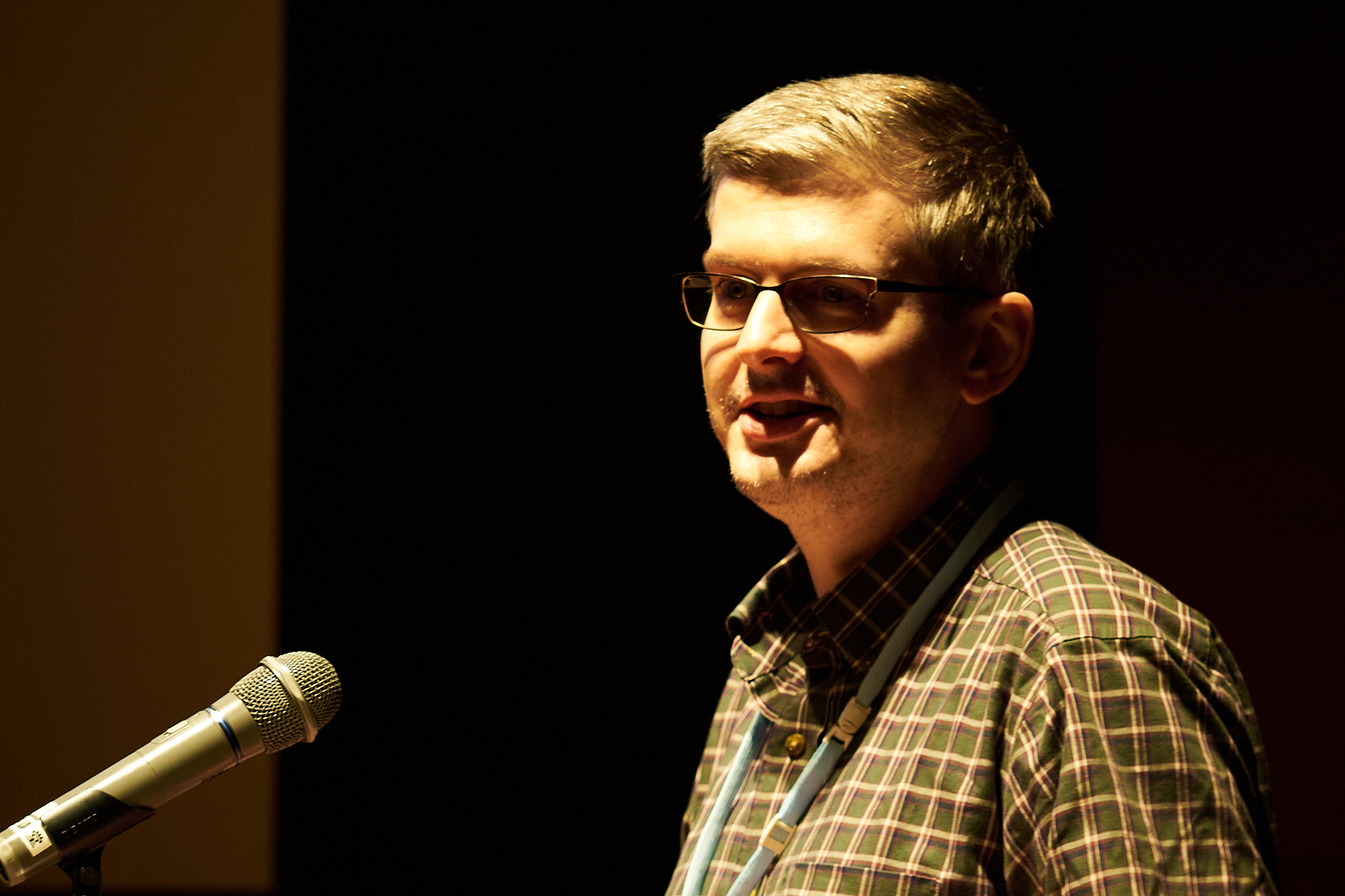
Dr. Chris Kern (Auburn University)
Dr. Chris Kern discussed how smaller public institutions in the Southern U.S. have limited library resources available for Japanese research. He suggested collaborative solutions like multi-institutional subscriptions and small research grants would be appreciated. Dr. Mattieu Felt outlined how economic and political pressures have sidelined foreign language programs and shared how he uses project-based learning, digital portfolios, and virtual exchange programs to align with career-focused education. Dr. Małgorzata Citko-DuPlantis argued that digital games, an impactful global phenomenon, offer a powerful new medium to revitalize interest in Japanese studies. She described how, through interdisciplinary initiatives such as hosting e-sports tournaments, and leading game studies seminars, she has seen major growth in student participation and collaboration with students of the arts, humanities, and STEM.
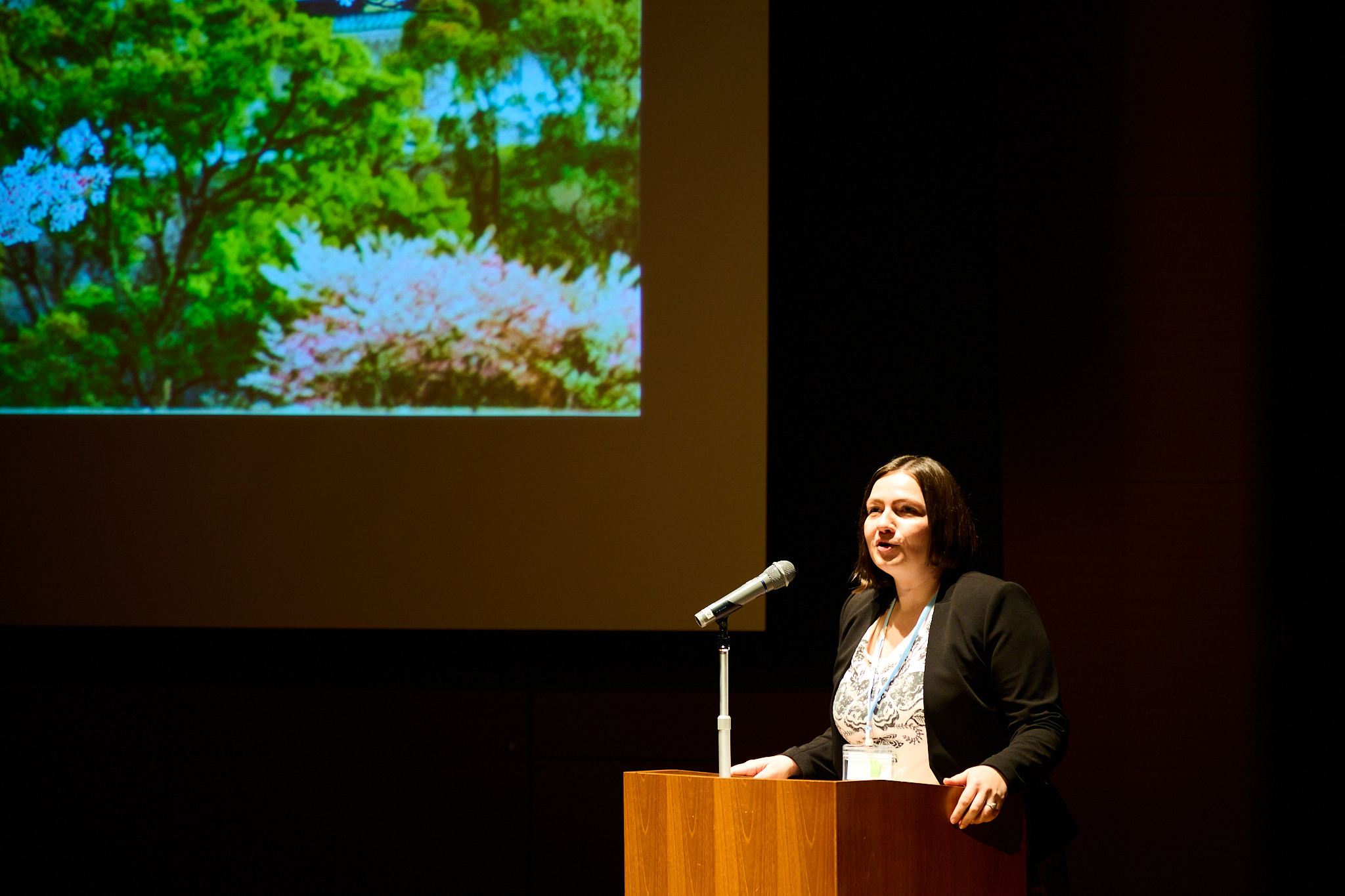
Dr. Malgorzata Citko-DuPlantis (University of Tennessee)
Attending this panel was both eye-opening and deeply motivating. Hearing from scholars like Dr. Kern, Dr. Felt, and Dr. Citko-DuPlantis, made me realize how unevenly privileges are distributed across the global academic context. Their presentations showed the different challenges institutions face in teaching, researching, and sustaining interest in Japanese humanities. However, what impressed me is how the professors approach each challenge with creativity and resilience.
This panel, and the symposium more broadly, deepened my understanding of how global collaboration is essential to the future of Japanese Studies. Professor Emmerich emphasized that one way the Yanai Initiative and the Japan Past & Present project can support Japanese studies scholars is by increasing visibility of their work worldwide and encouraging them to have the mindset of cross-border engagement, which connects to the larger goal of creating a truly global field. He gave the example shared by a symposium participant of the increase in translations of Japanese literature into Spanish thanks to the Spain-based publisher Satori Ediciones, which has sparked interest in Japanese studies in the Spanish-speaking world, showing even a small group of people working together on a project about which they feel passionate have a wide-reaching impact. As a Waseda student, I came away with a stronger sense of responsibility in contributing to a more connected and inclusive scholarly community through platforms like the Japan Past & Present website.
This article was written by the following Student Contributor:
San Paing (Emily)
School of International Liberal Studies


